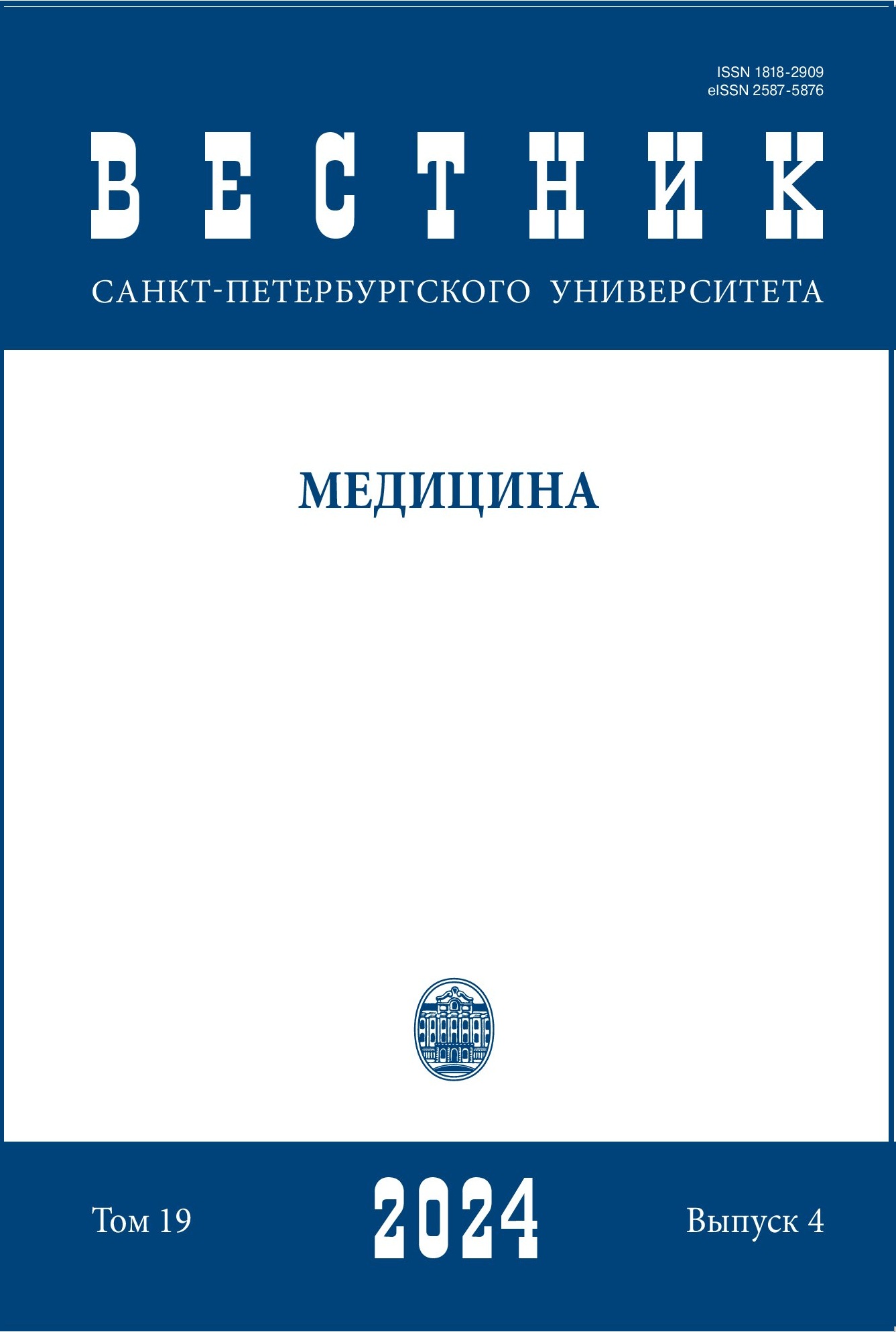The impact of gut microbiome condition on the development and progression of chronic somatic diseases
DOI:
https://doi.org/10.21638/spbu11.2024.406%20Abstract
Gut microbiota plays a key role in metabolism, immune regulation, and maintaining the intestinal barrier function. Disruptions in its composition are closely associated with the development of chronic somatic diseases such as type 2 diabetes, obesity, cardiovascular diseases, and inflammatory bowel diseases. Recent advancements in this field have been driven by the use of modern methods, including metagenomic sequencing and metabolite analysis, enabling a deeper understanding of the mechanisms underlying microbiota interactions with various physiological and pathological processes. One of the key aspects of microbiota research is its influence on systemic inflammation, metabolic processes, and the integrity of the intestinal barrier. It has been established that an imbalance between commensal and pathogenic microorganisms can contribute to the development of metabolic endotoxemia, insulin resistance, and chronic inflammation, all of which play a significant role in the pathogenesis of chronic diseases. Of particular interest are short-chain fatty acids and trimethylamine-N-oxide produced by the microbiota, which significantly affect inflammatory and metabolic pathways, including the risks of atherosclerosis and obesity. Despite notable progress, questions remain regarding the causal relationship between microbiota alterations and pathological processes. The development of personalized approaches based on genetic, microbial, and metabolic analysis could serve as a foundation for creating new diagnostic and therapeutic strategies. Future research in this area should focus on studying the long-term impact of microbiota changes and its metabolites, which may enhance the prevention and treatment of chronic somatic diseases.
Keywords:
gut microbiota, chronic diseases, inflammatory bowel disease, metabolic processes, type 2 diabetes, obesity, short-chain fatty acids, fecal microbiota transplantation
Downloads
References
References
Downloads
Published
How to Cite
Issue
Section
License
Articles of "Vestnik of Saint Petersburg University. Medicine" are open access distributed under the terms of the License Agreement with Saint Petersburg State University, which permits to the authors unrestricted distribution and self-archiving free of charge.




